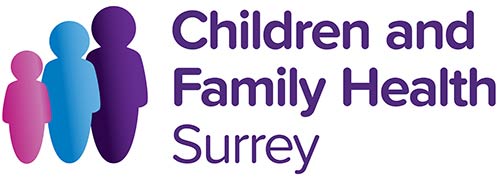When your child is between 10 and 12 months old you will receive an Ages and Stages Questionnaire (ASQ) questionnaire in the post with a prepaid envelope.
Please complete and return the questionnaire which will be reviewed by a health professional. If a follow-up review is needed, we will invite you and your child to an appointment at a local health centre or Family Centre.
If you would like support to complete your child’s ASQ questionnaire, please contact our Surrey-wide 0-19 Advice Line. The advice line is available on 01883 340 922 from 8am to 5pm, Monday to Friday (excluding bank holidays) and provides support on all aspects of child health, development and parenting.
The 1-year page in your child's Personal Child Health Record 'Red book’ highlights the new skills they may be developing at this age.
Babies and pre-school children receive immunisations through their GP surgery. The vaccination schedule for babies and young children is available on the NHS website including a measles webpage and a MMR (measles, mumps and rubella) vaccine webpage.
 The 10-12 month review is an opportunity to review your child’s progress including:
The 10-12 month review is an opportunity to review your child’s progress including:
- Healthy eating
- Dental health and advice on brushing teeth
- Safety advice
- What to do if your child is unwell
- Communication and speech
- Talking to your baby (BBC Tiny Happy People website)
- Sleep
- Funded childcare in Surrey.
Please visit the emotional wellbeing and mental health page to read about the support available for you.
If you are concerned about your child’s hearing, please visit our Audiology page.
You may also find our Speech and Language page helpful.
Do you know why Vitamin D supplements are important for you and your child?
Please read more on our Vitamin D page where you can also find information about the Healthy Start Scheme.
You may have physical problems after having a baby. These can be related to pregnancy or birth, or the things you do while caring for young children, such as lifting and bending.
For some problems, you can do a lot to help yourself. For example, if you have a leaky bladder (incontinence) or a heavy feeling between your vagina and anus, you may need to strengthen the muscles around your bladder by doing pelvic floor exercises. Find our more on the NHS website (incontinence).
Pelvic floor muscle exercises don't just help to stop incontinence, they can improve prolapse symptoms and make sex better too. To find out more about prolapse visit the NHS website (prolapse).
You can also visit the the Pelvic Obstetric and Gynaecological Physiotherapy website for further information including:
- Pelvic floor exercises for women leaflet: A guide on how do to pelvic floor exercises
- Exercise and advice after pregnancy leaflet: Advice on returning to exercise after birth including some simple exercises for the first few weeks after birth.
- Pelvic Organ Prolapse - A physiotherapy guide for women leaflet: Prolapse is very common affecting about 1 in 3 women who have had children. This guide can help you understand what a prolapse is. It will also explain possible causes and what you might be able to do to improve the symptoms you are experiencing.
The Squeezy app supports your pelvic health and is designed by physiotherapists. Please note there is a cost to this app.
If you and/or your children are scared, frightened, being controlled or hurt by someone you know or live with please contact:
- Surrey Domestic Abuse Helpline on 01483 776 822 (9am to 9pm, 7 days a week)
- Surrey-wide 0-19 Advice Line on 01883 340 922 (8am to 5pm, Monday to Friday excluding bank holidays) to contact the Health Visiting team
- Your GP
In an emergency, call 999.
Visit the Healthy Surrey website for advice, advocacy, practical help and support.
Families living in Surrey can get access to free online guides that include top tips from childcare, education and NHS health experts.
Visit our Free guides: understanding your baby, child or teenager page to find out more.

